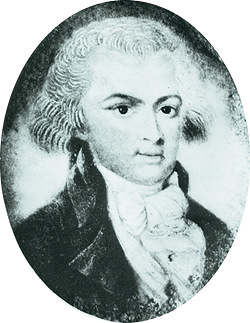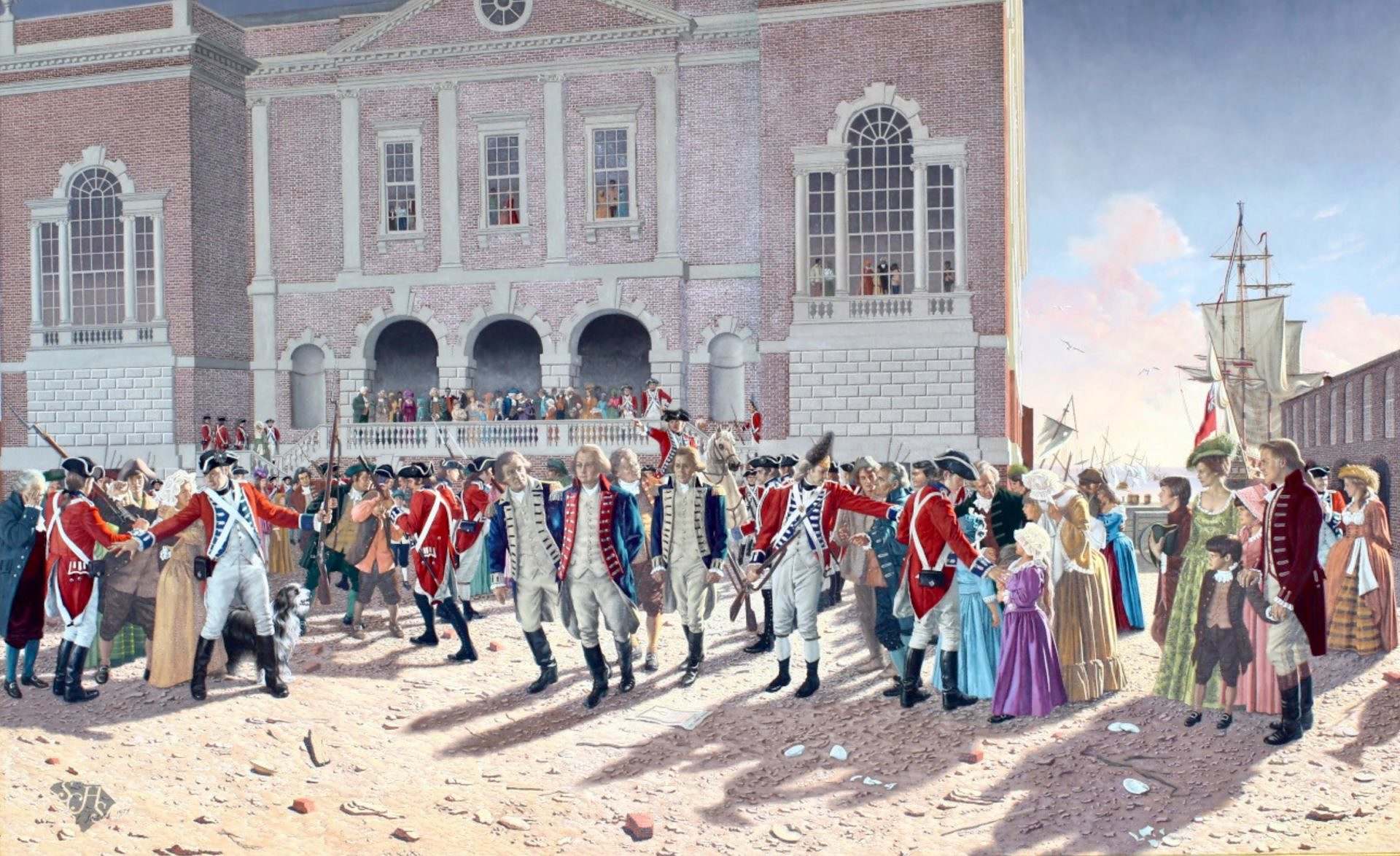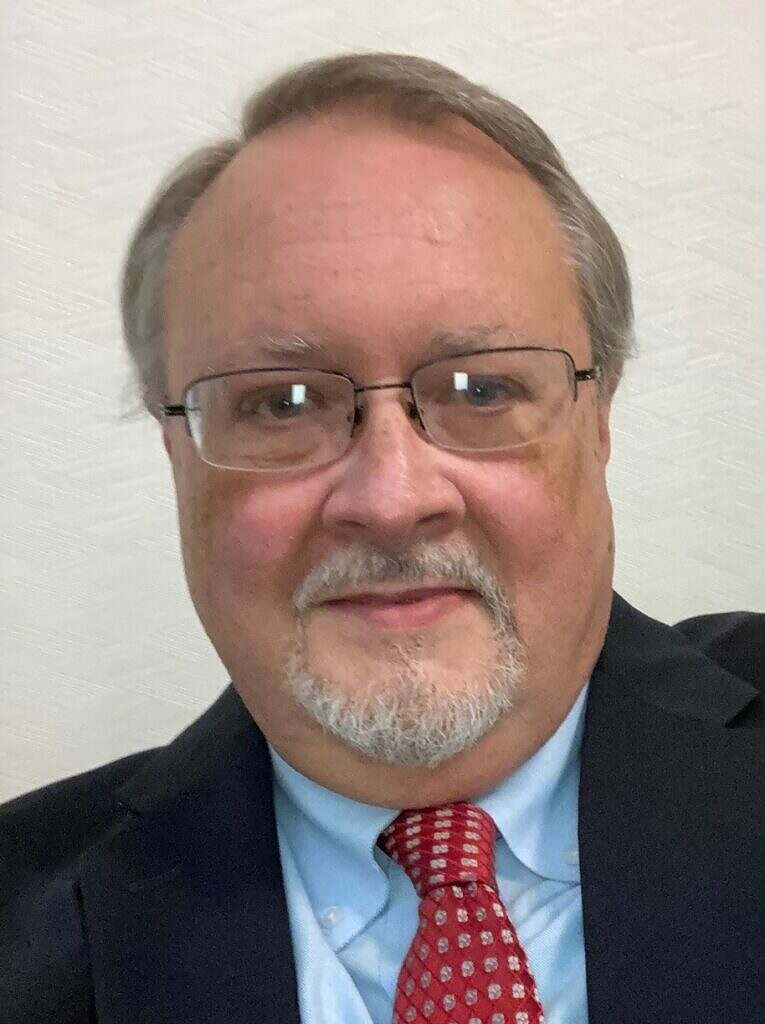|
Getting your Trinity Audio player ready...
|
It was a long, rocky road in our country’s quest for independence. The American Revolution’s outcome repeatedly dangled by a thread. Incredibly, it was rescued on every occasion – oftentimes by people unaware of the decisive roles they were playing.
Exactly 242 years on this day, a pivotal incident happened here in South Carolina – inspired by an awful end to the life of a South Carolina man. This is his story … and the story his martyrdom ignited.
The Revolution was running on fumes by the Summer of 1781. After six long years of battle and bloodshed, after exhilarating victories and humiliating defeats, the Patriot cause was withering on the vine.
Britain maintained an iron grip on the all-important Charleston harbor – and the historic Holy City. More than the colony’s capital, its port gave them a vital base for military operations in the South.
This is where Lowcountry resident Isaac Hayne enters our story.

“He was a member of the planter society,” explained Christie Slocum, historical and cultural coordinator at the Colleton Museum and Farmers Market in Walterboro. “He was an iron manufacturer and a church leader. He was a good friend. He possessed incredible character, and most people who met him just loved him.”
A prosperous rice planter (he owned a total of 6,500 acres in South Carolina and another 1,000 in Georgia), Hayne was 35 that momentous summer with a wife, children – and a lot on the line.
When the war broke out, he put on a uniform and cast his lot with the Patriot cause. Commissioned a captain, he fought honorably until the British took Charleston in 1780. At that point, Hayne returned to his plantation outside of Jacksonboro.
“This is where the water kind of gets muddy,” Slocum continued. “The Crown wanted everybody to say, ‘We’ll never fight against you and pledge our allegiance to you.’ And so they were asking people to come to Charleston to sign an oath.”
It’s not completely clear today why Hayne ventured into the occupied city in 1781.
“Based on some journals, we think his wife and several of his children were very sick with smallpox,” Slocum said. “We think he was actually going to get medication. And so he was stopped. And, of course, they said he had to sign the oath.”
Hayne was in a tough spot. He didn’t want to betray the cause for which he had fought and in which he still believed. But his family desperately needed medicine. It seems he was given the verbal assurance that he would not be compelled to serve with the British. So Hayne signed, got the drugs, and returned home.
It was too late, though. His wife and two of his children were dead when he arrived. Terrible as that was, the worst was yet to come.

***
“Hayne reentered American service on the Patriot side in 1781,” Slocum went on. “Less than a year after pledging his allegiance to England, he again picked up arms for the Patriots. He knew that if he were captured, it probably wouldn’t end well.”
He was right …
Hayne and a small command were assigned to a dangerous mission. American general Andrew Williamson had recently told the Brits he would no longer fight against them. Hayne led a small group that captured Williamson in a daring raid. The Redcoats were humiliated.
“So they came looking for Hayne,” said Slocum. “They found him and put him in the dungeon in downtown Charleston at the Customs House.”
The British commander sentenced Hayne to death without even holding a trial. “He didn’t have a chance,” Slocum pointed out. “People were very, very upset about that.”
Hayne had two last requests. He wanted to see his surviving children a final time. A relative brought them to Charleston, and they spent his last full day on Earth together.
He also asked to be executed by a firing squad for a soldier’s death, not hanged like a criminal.
(Click to view)

On Saturday, August 4, Hayne was taken out of the dungeon for his execution.
“He thought for sure it was gonna be okay,” Slocum said. “His first request had been honored.”
Hayne walked about a mile through downtown with his hands tied behind his back, probably to a spot near Marion Square. The streets were lined with people, some pro-British, some pro-Patriot, all curious to see what would happen next. “They said, ‘This isn’t right. Give him a fair trial.’ But the British commander just wouldn’t do it. He was going to prove a point.”
Hayne turned a corner — and saw the scaffold.
It wasn’t a modern gallows like you see in Western movies, either. This one was improvised over a wooden wagon. The short drop meant there was no chance of his neck breaking; it would be a slow, agonizing death by strangulation.
“He had to climb up in the wagon and put the noose around his own neck,” Slocum said. “He turned, looked at the driver, nodded his head, and told thim to move forward. And so he had to hang there in front of all those onlookers and be strangled.”
But while Isaac Hayne’s life had just ended, a firestorm ignited by his death was just beginning. People were furious over his treatment.
“The backcountry Patriots really rallied,” Slocum concluded. “I attended a talk not long ago where somebody said the war was won in South Carolina because we were too stupid to give up. But I thought, no, it’s because we were too angry. Hayne’s death was a catalyst. It gave the Patriots a reason to push forward and fight even harder.”
As a result, thousands of volunteers rushed the Patriot ranks, and George Washington finally brought Lord Cornwallis to surrender at Yorktown, Virginia, that October.
In losing his life, Isaac Hayne helped give life to our country.
They say Americans are desperately in need of heroes today – and they are correct. But instead of scouring the horizon for new epic figures, we should open our eyes and see those who displayed heroism in our very midst. Isaac Hayne was one of them.
***
ABOUT THE AUTHOR…
J. Mark Powell is an award-winning former TV journalist, government communications veteran, and a political consultant. He is also an author and an avid Civil War enthusiast. Got a tip or a story idea for Mark? Email him at mark@fitsnews.com.
***
WANNA SOUND OFF?
Got something you’d like to say in response to one of our articles? Or an issue you’d like to address proactively? We have an open microphone policy! Submit your letter to the editor (or guest column) via email HERE. Got a tip for a story? CLICK HERE. Got a technical question or a glitch to report? CLICK HERE.


